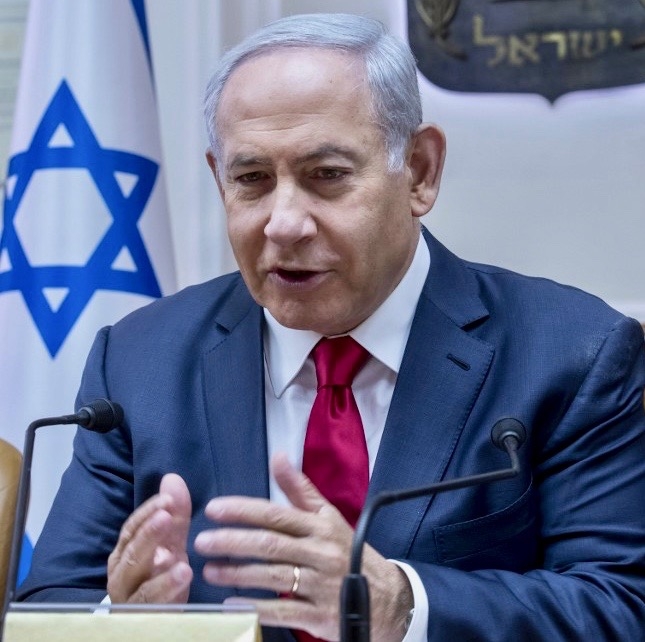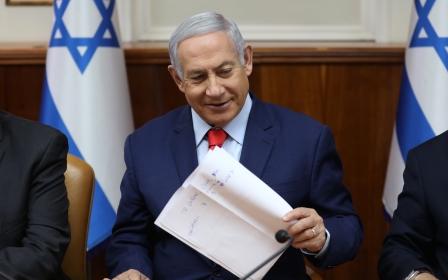Netanyahu says coalition deal still possible as talk of new elections grows louder

Israeli Prime Minister Benjamin Netanyahu embarked on Sunday on what he termed a "final effort" to break a deadlock on forming a governing coalition ahead of a Wednesday deadline for a deal and amid talk of fresh elections.
Netanyahu has been unable to reach a deal with potential coalition partners despite results from 9 April polls giving his Likud party and its right-wing and religious allies a majority in parliament, AFP said.
Negotiations have broken down over legislation aimed at requiring ultra-Orthodox Jews to perform mandatory military service like other Jewish Israelis.
Former defence minister Avigdor Lieberman, leader of the Yisrael Beitenu party, has long said ultra-Orthodox men must share other Israeli Jews' burden of mandatory service, Reuters reported. Ultra-Orthodox parties say seminary students should be largely exempt from conscription as they have been since Israel was founded in 1948.
New MEE newsletter: Jerusalem Dispatch
Sign up to get the latest insights and analysis on Israel-Palestine, alongside Turkey Unpacked and other MEE newsletters
Netanyahu needs both Lieberman and the ultra-Orthodox to form the coalition he is seeking.
A 42-day deadline mandated by law to announce a new government expires on Wednesday, and President Reuven Rivlin may then assign the task to another legislator after consultations with the leaders of political parties.
That could open the way for former military chief Benny Gantz, leader of the centrist Blue and White party, to try. But he would need the backing of some of Likud's allies to persuade Rivlin he could put together a ruling majority in parliament.
Likud and Blue and White each won 35 of the Knesset's 120 seats in the April ballot, but Netanyahu was seen as having clinched victory because of the right-wing majority that emerged.
Holding elections so close to one another would be unprecedented for Israel.
"I think that the problem can be solved with good will, if that's what people want," Netanyahu said at the start of a cabinet meeting.
"If there's not a desire, and things are being aimed in a certain direction, it's unfortunate. I don't think the country needs to be dragged to another election, but there might be someone who wants that," he added.
Likud and its allies hold 65 seats in the 120-seat parliament, including five by Lieberman’s Yisrael Beitenu and the ultra-Orthodox parties' 16.
A Likud spokesman said Netanyahu is working on a solution that would allow forming a right-wing government alongside the draft bill, Haaretz reported.
Still, both Lieberman and ultra-Orthodox leaders have indicated they are not prepared to compromise.
According to the Likud spokesman, the party has also begun preparing for new elections "if Lieberman continues to insist on bringing down the government", but added no decision has been made yet to dissolve the Knesset, Haaretz said.
Meanwhile, thousands protested in Tel Aviv on Saturday night against Netanyahu's reported attempts to seek immunity from prosecution as part of coalition negotiations.
Netanyahu faces potential indictments for bribery, fraud and breach of trust in the months ahead.
Netanyahu has vowed to remain in office even if he is charged. He denies any wrongdoing and is scheduled to argue against the indictments at a pre-trial hearing in October.
Middle East Eye delivers independent and unrivalled coverage and analysis of the Middle East, North Africa and beyond. To learn more about republishing this content and the associated fees, please fill out this form. More about MEE can be found here.





